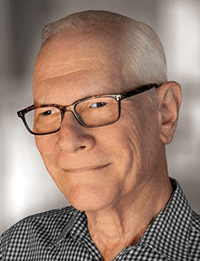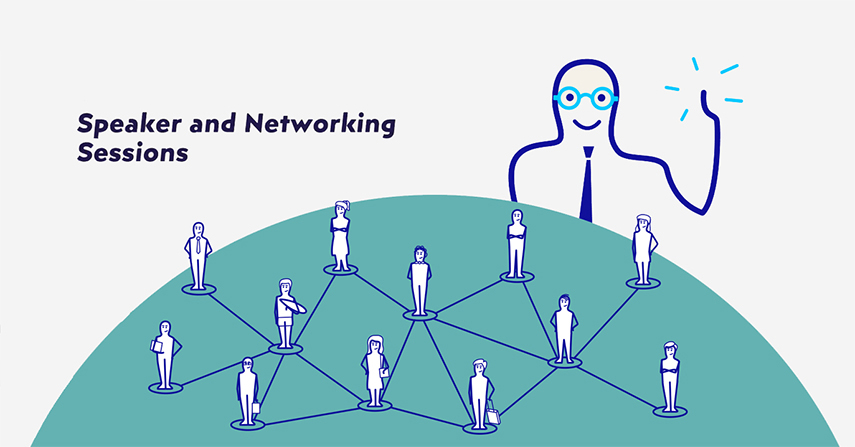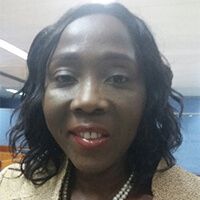
Career of the Year 2020: Healthcare. Interview with Stuart Weiner
The year 2020 demonstrated the importance of careers in healthcare. Today, as this challenging year comes to an end, we want to present you a fascinating interview with Stuart Weiner, a Healthcare Compliance Professional with experience in major NY City medical institutions, and the author of the articles on Mr. Simon. Stuart will share his experience in the healthcare field and in other areas of his expertise.
The interview was conducted by Funbi Fagade, a member of our Work Search Buddy Network.
Funbi is a Project Manager, Agile Certified Professional, Business Analyst and Information Systems Auditor. She brings a unique perspective to the kinds of questions that will help us better understand Stuart’s background and insight into the subject of job search.
Meet Stuart!
Funbi: Stuart, the readers of Mr. Simon are well-acquainted with your insightful articles. They follow your advice on the important steps to take in their job hunt, and they learn how to stand out from other candidates during their job interviews.
Most of our audience only knows you as a blog writer on job search topics. But not many people know much about your background. Today we would like you to tell us something about yourself.

Stuart: Thank you, Funbi!
Over the past 30 years, my work has been focused on corporate compliance, mainly in healthcare. During that time, I’ve served as Chief Compliance Officer at both a major New York City Medical Center and a large physician practice in Brooklyn, New York. In addition, I have held compliance positions at a number of other organizations, including one of the big four accounting firms.
Funbi: That's a whole bunch, in terms of compliance!
Let's start from when you were young. Was there anything you dreamed about being when you grew up?
Stuart: Like most boys, I wanted to be a fireman, or a cowboy, or any of the usual things that small children want to be. I never had any particular passion for something that might drive me in a certain career direction as I got older.
Interestingly enough, one of my uncles was a dentist, and my mother wanted me to go into dentistry, thinking that would be a good way to make a living. What really cemented my decision not to go in this direction were my rather mediocre math and science skills in high school.
I thought to myself, “There's no way I'm going to be able to get through a science curriculum in college and dental school,” so that went by the board.
Stuart as a Professional
Funbi: So, tell us a little bit on how you wound up in healthcare?
Stuart: I had a few jobs when I got out of college, none of them related to my major, which was history.
Among other jobs, I taught school for a couple of years, working with developmentally disabled children when I was in my early to mid-20s. Teaching wasn't something that was a real passion of mine, and the pay wasn’t great, so I figured I'll find myself another kind of job.
On the advice of a friend, I found a job as an internal auditor for a large retail organization. I went through the ranks there and became a manager of the internal audit department.
I did not need a CPA to do that work since there was not a lot of accounting involved. It was mainly making certain that the organization was following all the policies and procedures, and I was doing the work to make sure that everything was being done correctly.
Entering Healthcare / Compliance Program
At a point in that part of my career, someone told me that there was a job opening with a hospital in their internal audit department, so I was able to make the move to healthcare, not because I was driven towards it, but because it sounded like a good job to me.
Since I had already developed strong auditing skills, I was able to step into that position relatively easily and remained on the job for a number of years.
In the late 90s, the hospital decided to develop a compliance program, which at the time had become a very important area for healthcare.
The Chief Compliance Officer knew me well from my work in the audit department and asked if I'd like to work with her to create the compliance department at the hospital, and then I went on from there.
Healthcare is one of the most highly regulated businesses in the country.
I soon realized how significant my job had become to help ensure that the hospital was meeting all of the federal and state regulations meant to protect patients, especially under the Health Insurance Portability and Accountability Act (which everyone knows as HIPAA).
Now, of course, in 2020, when we have been so overwhelmed by COVID-19 and all of the issues raised by the pandemic, the role of compliance in healthcare is more important than ever.
The Major Tasks of a Compliance Program
Funbi: What were the major factors that you had to work with while you were coming up with a compliance program for healthcare in the various organizations you worked for?
Tell us some of the things that you had to do to ensure that the organizations were in compliance with HIPAA, the Affordable Care Act, HITECH, EMTALA, and other standards of the U.S. healthcare system.
Stuart: Back in the early 90s, the U.S. government had come up with a set of rules about what makes a company compliant. This made my job a little simpler because I was able to take these rules and put them into a program. They involve things like training, hiring the right people, making certain that policies and procedures are in place, etc.

We put together our set of policies to ensure that we had privacy, that we had the right kind of security standards in place and other standards that had to be met.
HIPAA was one of the most significant government regulations but there are other regulations that are required to be maintained.
We trained against all those standards to make sure the employees understood what the regulations are, what they’re permitted and not permitted to do with patient’s information, and how to securely maintain it at all times.
I would work with various folks in the IT department to make sure our systems were properly protected so that employees would be able to safely sign on to the system and use it, and sign off the system, change passwords, and do all the steps that needed to be done.
So, it was my job, and it was simple enough to follow what the government requirements were, and then to build on those as well.
Compliance Program as a Project
Funbi: How were you able to come up with a compliance program? I imagine it would involve IT and others; that is, you take it as a project. Most of these standards will be enforced either automatically or manually. What process did you have to go through to ensure that the organizations complied with HIPAA and all the other standards that are enforced?
Stuart: Most organizations expect their Compliance Officer to be the expert in all aspects of compliance, but I always worked with others in a collaborative effort to get the compliance program in place.
Wherever I worked, I would always put together the right kind of team we would need on a particular project.
Based on my knowledge and experience, I would be the team leader in most compliance-related projects, but to get programs implemented, it was not just me creating something.
For instance, implementing the IT aspects of compliance would often involve the VP of Information Technology taking a leading role.
Even today, in my own business as a compliance consultant to healthcare practices, I work with my clients in a collaborative effort to ensure that there is buy-in from leadership to ensure a successful implementation of the right kind of compliance programs for their businesses.
An Auditor Actually DOESN’T Make Your Life Difficult!
Funbi: Did you have any challenges as a compliance manager in the course of your daily work with your colleagues from other departments?
While I was in the audit department, my experience was that an auditor must be able to manage others who assume you're making life difficult, to make a success of the role and add value to the organization. Did you experience anything like that?
Stuart: Absolutely! As you said, being an auditor as well as being a compliance person is really two sides of the same coin.
What I've tried to establish in my role as a compliance officer is to work with senior-level management and have them agree to what needs to be done so that we can move forward with all of the steps to make certain we put the compliance program in place.
We can set the ground rules before we begin the program, and then when compliance issues or problems come up – we are all ready to deal with them, no matter the consequences.
COVID Experience

Funbi: Let’s talk about the current COVID experience. How should compliance be practiced right now in organizations? What do you see happening? What do you advise compliance managers? How do you advise them to go about this effectively?
Stuart: Compliance, whether it's in healthcare, in manufacturing, or whatever, during this period of time still means understanding the rules and complying with the law.
You can't stop compliance; you can't just say, “Well, you know, we're overwhelmed. We've got tons of patients; people are very sick. And so, we don't really have time to pay attention to the finer points of complying with the law.” That can't happen! You still have to comply with the rules and regulations.
There was some relaxation in the rules earlier this year, but, bottom line, things really didn't change. You still have an obligation to protect information and follow all the rules.
My advice to any healthcare organization, any compliance department within a healthcare organization is not to let up on ensuring that the organization is following the law.
If they're careless and if a breach occurs, even if it’s one patient’s information, let alone 500 or 10,000 or more individuals that have their information breached, it is going to be a big problem that has to be dealt with.
Whether it is by error or by intent, patient information that is allowed to escape from your protection is wrong.
During the pandemic, healthcare is more obligated than ever to protect patients as well as coworkers. And if we are so busy trying to protect their lives that we forget that we also have to protect everything else around that individual's information, this could lead to even bigger problems. Those things still have to be paid attention to.
Areas of Expertise
Funbi: Now that we looked at you as a professional, let’s touch upon other areas of your expertise more closely. As we can notice, you have quite a lot of them.
Mr. Fixit
Funbi: What makes you an excellent fit for the position in compliance?
Stuart: Compliance, as well as internal audit, is really driven by rules you have to follow. It's not necessarily hard to be someone in my position – you just have to know what the rules are. You look at how people do their job, or fail to do their job, or come short of some standard, and you can then apply what the standards are to what the issue is that you're looking into.
For example, someone inadvertently makes a mistake and releases information about one of the patients or a whole lot of patients. They do this not out of malice, they do it out of an inability to understand what the rules are, or they just allow something to go wrong that they didn't mean to happen.
So, when I come to a situation like that, my job is to not only find out what went wrong, but why it went wrong, and how to fix it.
I've always been a sort of a Mr. Fixit. I like to delve into what happened and figure out how to make it right.
I've always had this sort of investigative gene in me that says, "Here's what happened. Now, try to find out how it happened, why it happened that way, and put that together in a good, meaningful report to management, and let them know what went wrong and how to fix what went wrong."
That's what I've been doing for my whole career. It doesn't make me stand out or be different from others, but it singles out a skill set that I think I bring to something like compliance, which requires those capabilities.
Transferable Skills
Funbi: You bring your base of knowledge to any job you have. One of the latest articles that you wrote for Mr. Simon is “Transferable Skills and Your Next Job.” So, you have expertise in this area now, right?
Stuart: When I was doing the research for that particular article, I found dozens of things that are referred to as transferable skills. These are things that you can take from job to job. If you're a good communicator, whether you're working in a pharmaceutical company or working at a fast-food restaurant, you have to know how to communicate.
Soft skills such as communication, teamwork, organization, leadership, listening, etc., are very important. And most of us have a good many of these innately. We know how to do these things. Most of us have some of these talents or some knowledge or skills we can bring to pretty much any job.
Part of what makes me good at what I do is communicating with other people, listening to them, and understanding their issues and problems. In that way, I have certain empathy for others in their situation, and they can sense this in me.
Privacy
Funbi: I had some of my former colleagues and friends who asked me about what drives me to work so hard and makes me stay focused on achieving results in some of the projects I handled at the time.
I want to ask you, why do you do what you do? What drives the passion with which you were able to achieve so much in your career?
Stuart: Well, let's go back to privacy because that's an important issue.
Over the past 10-15 years in working with some compliance issues, especially in healthcare, I've built up a sense of what privacy means to all of us.
It came originally from the HIPAA issues because it is primarily a privacy driven law. Suppose you are a covered entity like a hospital or doctor's office. In that case, it is your absolute duty to protect patient information, to make certain that the data is protected, and it's not released in any way, under any circumstances.
Doctors take the Hippocratic Oath which includes the statement, “First, do no harm.”
I think of the privacy laws in the same way. A breach of privacy can be very harmful to the patient, so it is important to protect them from the damage caused by this.
In fact, a breach of anyone’s privacy in almost any situation (not just in healthcare), can be very damaging and should be avoided under all circumstances. Let’s just say that privacy remains at the top of my concerns at all levels.
Outside of HIPAA, I've also gone on to make an effort to understand the European Union's General Data Protection Regulations (GDPR), the new California privacy regulations, and the general privacy regulations of the federal government of the United States (that are different from the HIPAA regulations).
In addition, both New Jersey and New York, USA, have their own privacy laws, rules, and regulations, and having been involved in those two states during my career, I've learned quite a bit about their privacy rules as well.
Personal Integrity
My main passion, after privacy, is personal integrity.
As a compliance professional, the concept of personal integrity is extremely important to me both in my work as well as my life. Without it, neither business nor civilized society would be able to exist for the good of everyone.
I believe that personal integrity is a person’s inherent understanding of What Is Right vs. What Is Wrong, and the conviction to stand for what is right.
As former U.S. Senator Alan Simpson once said, “If you have integrity, nothing else matters. If you don’t have integrity, nothing else matters.”
A good example of someone without any personal integrity is Bernie Madoff. Obviously, he has no personal integrity, and he went to prison for the rest of his life because of his schemes and frauds. If he had ever had any personal integrity, he would never have wound up where he did and ruined so many other lives.
These two things – privacy and personal integrity – drive me more than anything else.
Writing Skills

Funbi: One more area of expertise that our readers are aware of is your writing skills. How did you discover and develop them?
Stuart: Good communications and, especially, good writing has become an essential part of me. Over the years, I have written hundreds of reports, policies and procedures, work-related guidance, etc.
I write the way I think, which makes it fairly easy for me to put my thoughts and ideas on paper (or on the computer screen). When I can, I try to humanize my thoughts and ideas a little bit, in order to better reach my target audiences.
I do not see myself as a professional writer – I don’t think that I could ever write a novel or a 25,000-word article for a newspaper or magazine. I see myself as a communicator who uses the written word to bring ideas to others.
The main way to learn a good skill is to just do it over and over again! The more you write, the more things you have to take on, whether it's a report, an article, a policy that your boss asks you to put together, serves to improve those skills.
I know it’s often stressful for people to write so here is a good rule of thumb, "When you write, make sure that you’ve proofread it yourself, and maybe do this several times if you have to, just to be sure."
I always pride myself in never even sending an email out without proofreading it. There is nothing worse than trying to make an impression on others by giving them a poorly spelled, grammatically awkward document. They will notice the mistakes!
If it is an important document, and you are not sure – get somebody else to look at what you’ve written, and let somebody else give you their thoughts, even if, in the end, you don’t agree with what they're telling you, at least you see a different perspective, not just your own.
Funbi: Practice makes perfect! Proofread whatever you write, and make sure that you are also corroborating with others. Teamwork makes perfect work!
Advice on Starting Your Career in Healthcare

Funbi: For those who read this article and want to take compliance as their career path, what are the skills they should look out to build on to be able to make it? What would you advise them?
Stuart: I would advise anybody who's interested in healthcare compliance as a career path to take college and graduate level courses.
I've been speaking to people at Seton Hall University (New Jersey, USA). Within their law school, they have a certificate degree. It takes two years, and it's in compliance, privacy, and healthcare. You can go that way if you're passionate about getting into it.
The Health Care Compliance Association (HCCA), which is probably the largest in the country, and the Society of Corporate Compliance Executives, both offer certifications in compliance, privacy, and security.
I would encourage anyone interested in compliance as a career to also consider the Certified Fraud Examiner (CFE) or Certified Internal Auditor (CIA) certificates, both of which will greatly improve their knowledge base in these areas.
Getting at least one of the certifications, if not more than one, not only tells others that you know about your subject matter but teaches you a lot about those subjects. The things you've learned from those kinds of certifications stay with you and keep you moving.
If you're just starting out, the other thing is to take whatever background you have and look for an entry-level position with a compliance department in large organizations, large hospitals, like St. Barnabas in New Jersey or Mount Sinai, or Columbia Presbyterian in New York.
They always have the need for bringing new people in and training them to be part of their compliance program. That is certainly a way for younger folks to go if they're looking to get into this area.
If you do well, you can make a good living and be able to move up in your chosen field.
But not only that, it's very satisfying! Again, you're working for an organization whose primary goal is to save lives, to do better, to help people.
If you work for a large organization like Mount Sinai or Columbia, they not only have hospitals, but they also have medical schools.
Compliance is needed in medical schools (think “research programs”). So, you can really learn a lot by going through those kinds of programs and working for compliance departments within those organizations.
Importance (or Non-Importance) of Certifications
Funbi: Would you advise employers in healthcare as well as other industries to only recruit those having certifications or not? I believe in certifications, but I don't think that is the only thing that counts. So, I want to know what your take is on that.
Stuart: Employers put a lot of emphasis on certification, on education. They want to see people come in who have worked hard to get the knowledge that is so necessary for jobs these days.
I would strongly recommend anyone who is in the early stages, or just about anywhere in their career, if you don't have certification, you should still make every effort to get it.
And if you're working for a company that will pay for it, that's even better because it can be rather expensive, especially for someone who doesn't have a job right now and may not have the necessary funds to pay out of their pocket to get certified in something.
Indeed, when someone's employed, and the employer is willing to pay for it, I think certification is an excellent way to go.
The part of the problem with employers – and we all know about how resumes are reviewed by the Applicant Tracking System and all the other things that go on – is if you don't meet four or five key points that they're looking for, your resume goes in the circular file, and it's never seen again.
There are still ways to get past that; there are still ways to get yourself noticed, even if you don't have certification, if you've got the right kind of skills and background, and your resume reflects that! That's certainly an important thing.
Obtaining skills and learning on the job, knowing how to do things, and knowing essentially how business works and people work with one another, is as important as any certification you can get to be able to do your job. You still have to understand what your job is about and to be able to do it.
All the education in the world isn't going to give you that skill that helps you to:
- get along with other people
- make sure others know what you're about
- understand what they're about
Certification isn't the only answer to that. Some of it is just experience and good people skills.
Funbi: In essence, certification programs give people an edge, if you can – get certified.
Stuart as a Trainer
Funbi: On top of all of this, we also know that you are involved with PSGCNJ – an employment community that helps members in their career journey to build professional relationships, protect their current skills and learn new ones. Tell us more about it. What do you do for them?
Stuart: I joined PSGCNJ early in 2019. I went to some of the meetings and was very impressed with the training.
I took the ACT training early on, and then I was approached by Larry Maglin, who was the director of the training committee. He asked me if I'd be interested in helping out.
He offered me a position as one of the registrars. That seemed like something I could handle well from home. I said, “Sure, I'll take that on!”
So, I've been doing registrar work for the training committee. It's fun, interesting, and fulfilling. I get to interact with others and help them to obtain the job-hunting training they need to succeed in their goals to find their next job.
I enjoy doing it, and I can see that it helps others. It helps the organization to be able to achieve its objectives as well.
Stuart and Mr. Simon
Funbi: I had the opportunity of reading your articles on Mr. Simon. I particularly enjoyed your write-up on STAR stories. It is really educational. Can you please tell our readers, how your “story” with Mr. Simon began? How did you get involved with him?
Stuart: I was speaking with Natalie Lihacova one day while we were meeting at PSGCNJ in Somerville, New Jersey, where she also used to work.
She asked me if I would be interested in proofreading and editing one of her blog posts for PSGCNJ. And I told her that I would be happy to help.
She sent me the post, I reviewed it, edited it, and made some comments to her. She was very pleased with what I had done and said, “By the way, I have this website, Mr. Simon, will you be interested in doing some proofreading for it?” And I said, “Yes, with pleasure!”
Initially, it was proofreading work that either she or one of the people who work on content for her had written. Then there were a couple of subjects that had not been written yet, and Natalie asked me if I would be interested in writing some of those articles from scratch.
So, I wrote several blog posts that are on Mr. Simon's website now, and presently I am working on the next articles to be published.
I also took part in writing guidelines on how to answer common interview questions that most companies ask during job interviews. On Mr. Simon, these guidelines are filtered by Companies and Positions to make it easier for job seekers to use.
Of course, anything that I have written is proofread by Natalie to make sure it fits all the requirements.
A Word about Work Search Buddy Network

I’ve received a number of other assignments from Mr. Simon and am now a member of Mr. Simon’s Content team, which also includes Natalie and Marla Fishman.
I am actively engaged in the Work Search Buddy Network (WSBN) created by Natalie and her team.
This group supports both individuals seeking their next job role and working professionals, with the help of a data-driven mentoring program, regular interactive events like Speaker and Networking Sessions, Lightning Talks by members, and Interactive Group Discussions.
I visit all the group’s events as a listener, and I have already been a presenter in the “Taking the Leap: Starting Your Own Side Hustle or Business” live event that took place on September 17, 2020. I will definitely participate in future WSBN events.
Work-Life Balance
Funbi: Let's look at you as a multi-faceted professional: you are into writing, training, consulting, healthcare consulting. How do you balance your work and life? Do you have time for recreation because it's also part of a healthy lifestyle, isn’t it?
Stuart: Absolutely! I try to make time every day to do something. The key is getting some good healthy exercise, even if it’s just walking. I have a stationary bike I ride; every day I do some weightlifting. All those things just keep me going.
I take time out every day to read something. Sometimes, it's business articles or interesting things; sometimes, it's just a novel. I love reading mystery stories, Agatha Christie, etc. I always try to make some time for that.
I’ve also been developing my consulting practice. I work with small to medium-sized physician and dental practices to help them understand their compliance obligations because most of them don't have a compliance officer or even anybody who takes care of that aspect of their business.
I'm keeping busy that way as well as doing some work for Natalie and Mr. Simon.
I have five grown children, and we see them all the time since they all live nearby instead of being scattered all over the country. As for the rest of my time, my wife and I just enjoy each other's company going out, doing things together.
Funbi: What would you want to be known for?
Stuart: I guess I'd like to be known to the outside world as a someone people can rely on, as a mentor to others, as a friend, and as a great colleague. If I'm known for those things, I’m satisfied. And, of course, to my family, just a great Dad and Husband.
Funbi: Thank you, Stuart! It's been very interesting speaking with you. You are great company!
I would like to ask you one more question. With everything that has gone on in 2020, what are your thoughts and hopes for the New Year?
Stuart: Funbi, it has been my pleasure speaking with you as well.
As for the coming year, I certainly hope we can put aside our squabbles and come together as a country to defeat COVID-19, move on to reopening our economy, and getting everyone back to work. After all, helping to move people back into the workforce is the goal of Mr. Simon and one I truly support.
About the Author: Funbi Fagade has successfully managed teams over the past 10 years in project management and process improvement initiatives. She is a Certified Project Manager Professional, Agile Certified Professional, Certified Business Analysis Professional, Auditor, and Scrum Master with experience in financial services, retail, and automobile industries. Funbi has over 10 years of experience identifying and mitigating systems and credit risks, coordinating the development of business & functional specifications for specified applications, and prioritizing business processes to refine requirements and use cases.
You don't have to be alone in your job search!
Mr. Simon invites you to join the Friends of Mr. Simon Meetup Group that supports both individuals seeking their next job role and working professionals. Members of our network come together to learn and practice new skills and network with others through our regular interactive events where they establish meaningful connections and have a chance to promote their personal brand and stand out in the marketplace.
Group membership is free of charge, courtesy of Mr. Simon.
Join our Friends of Mr. Simon Meetup Group to become part of our growing and supportive community!
